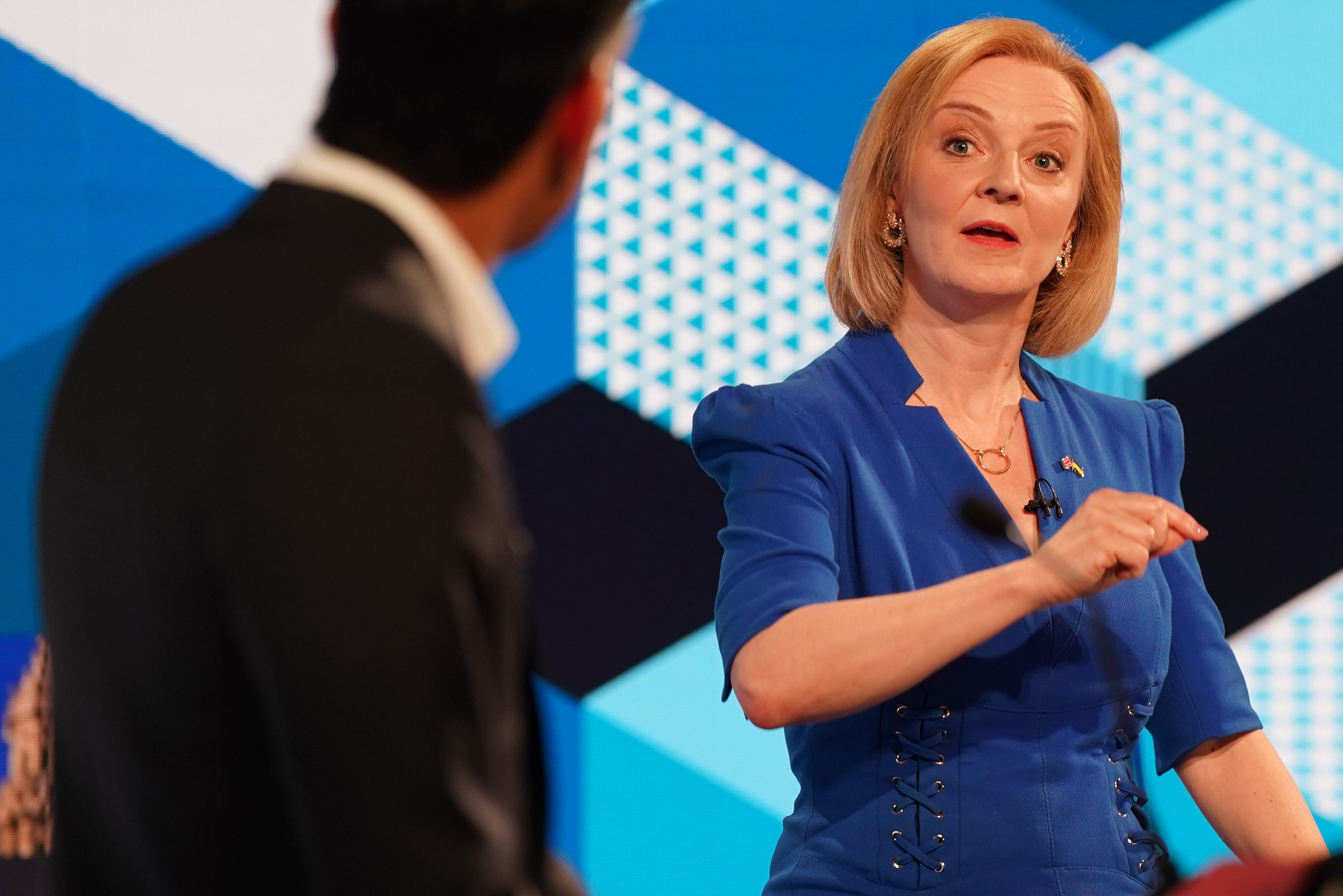Does the Conservative Party have a death wish?
Does the Tory leadership election reveal that the party has given up on the next election, asks John Rentoul


Has the Conservative Party had enough of governing? Has it decided to take refuge in make-believe while it allows the country to go to hell in a handcart, in the subconscious hope that Keir Starmer will take over in a while and sort out all the difficult problems that it has ducked?
That is one way of interpreting the reaction to last night’s TV debate. Conservative Party members thought Liz Truss won it, while the general public thought it was a draw. Personally, I was with the Labour voters who tended to think that Rishi Sunak was more energetic, articulate and credible.
But it may be too late now. Unless there is some damaging revelation about Truss, it seems that Sunak cannot make up the gap between him and the frontrunner. So we should start to think about what a Truss government would be like.
So far, this has mostly taken the form of fantasy cabinet-making. Truss added to the speculation last night by promising Sunak a place in her cabinet. In practice, that is only a promise to offer a place, as the only positions he is likely to accept, given that she will not be restoring him to the Treasury, are foreign secretary or home secretary.
Either would be a good appointment, and would fulfil her pledge of a unifying government of all the talents, in contrast to Boris Johnson, who made his defeated rival Jeremy Hunt an offer he couldn’t accept, of defence secretary.
Whether Sunak returns to government or not, I think he will stay in the House of Commons. Some people assume that, because he is rich, he will want to go back to making money, but I think that is a misunderstanding. He wants to be prime minister, and at the age of 42 this isn’t his last chance. Especially if the tumult of the next two years is as riotous as I think it will be.
It is the likely state of the economy over the next two years that makes me think the Conservatives have taken a holiday from reality. We face high inflation, an energy crisis and an NHS backlog that doesn’t bear thinking about. Do Tories want someone in charge who has already been tested in a crisis and who, although his response wasn’t perfect, did broadly the right things? Or do they want someone whose greatest achievement in government has been to transpose EU trade agreements with other countries into UK ones?
Never mind that choice; they want the candidate who promises tax cuts, who can do the better Margaret Thatcher impression and who was “loyal” to Boris Johnson. The Tory party is in thrall not to Thatcherism but to a mythical character called Thatcher, a two-dimensional legend who cut taxes and saved the country from chronic economic dysfunction through strength of personality. The more Sunak tries to explain the Thatcherite virtue of sound money, the less they want to hear him.
What is truly extraordinary, though, is that the party is spellbound by another myth: one that has been created in the past few days. It is the legend of Boris Betrayed. It is linked to the older myth, that Thatcher was betrayed by her cabinet, when she was in fact brought down by Conservative MPs as a whole, fearful that she was going to lose them the next election.
To keep up to speed with all the latest opinions and comment sign up to our free weekly Voices Dispatches newsletter by clicking here
The new religion, with Peter Cruddas, the Tory peer, its unlikely St Paul, is that Johnson was brought down by cabinet schemers who were after his job – principally Sunak.
In the past, it was Labour that was ruled by the myth of betrayal, but it was of a leader betraying their followers, and goes back to Ramsay MacDonald in 1931. The Tory myth, which dates back to 1990, is different, in which the heroic leader is betrayed by establishment forces. And now the Tory version has acquired another victim.
Johnson is going to play this myth for all it is worth, as William Hague, who understands the party’s psychology, warned in The Times yesterday. Indeed, yesterday Lord Cruddas said Johnson had told him he “does not want to resign” as prime minister and wishes he could stay to fight the next election.
Polls of Tory members suggest that around one-third of them agree with him, but that is enough to skew the leadership debate towards unreality. That means that, instead of a debate about how the government can get the economy and the NHS back on track, which is all that matters for a party hoping to win an unprecedented fifth consecutive election, we have been treated to a horror show haunted by the ghosts of Thatcher and Johnson.
Join our commenting forum
Join thought-provoking conversations, follow other Independent readers and see their replies
Comments